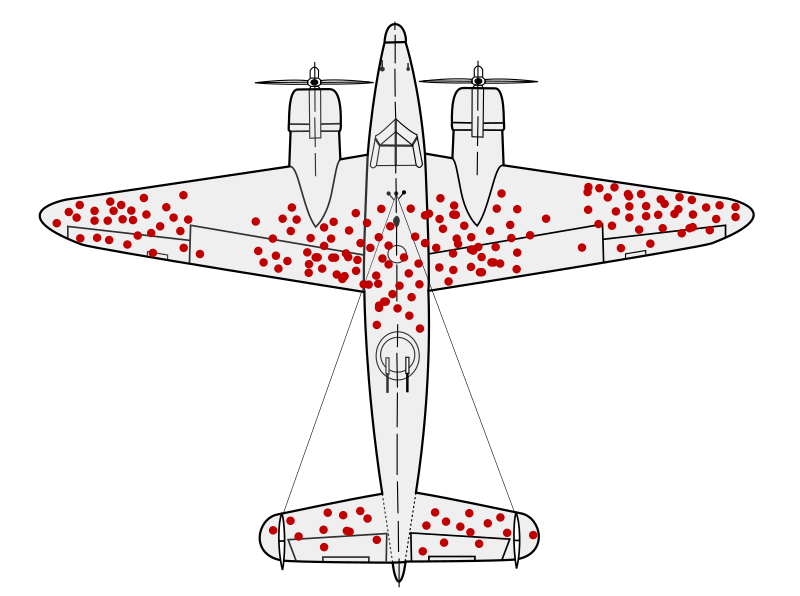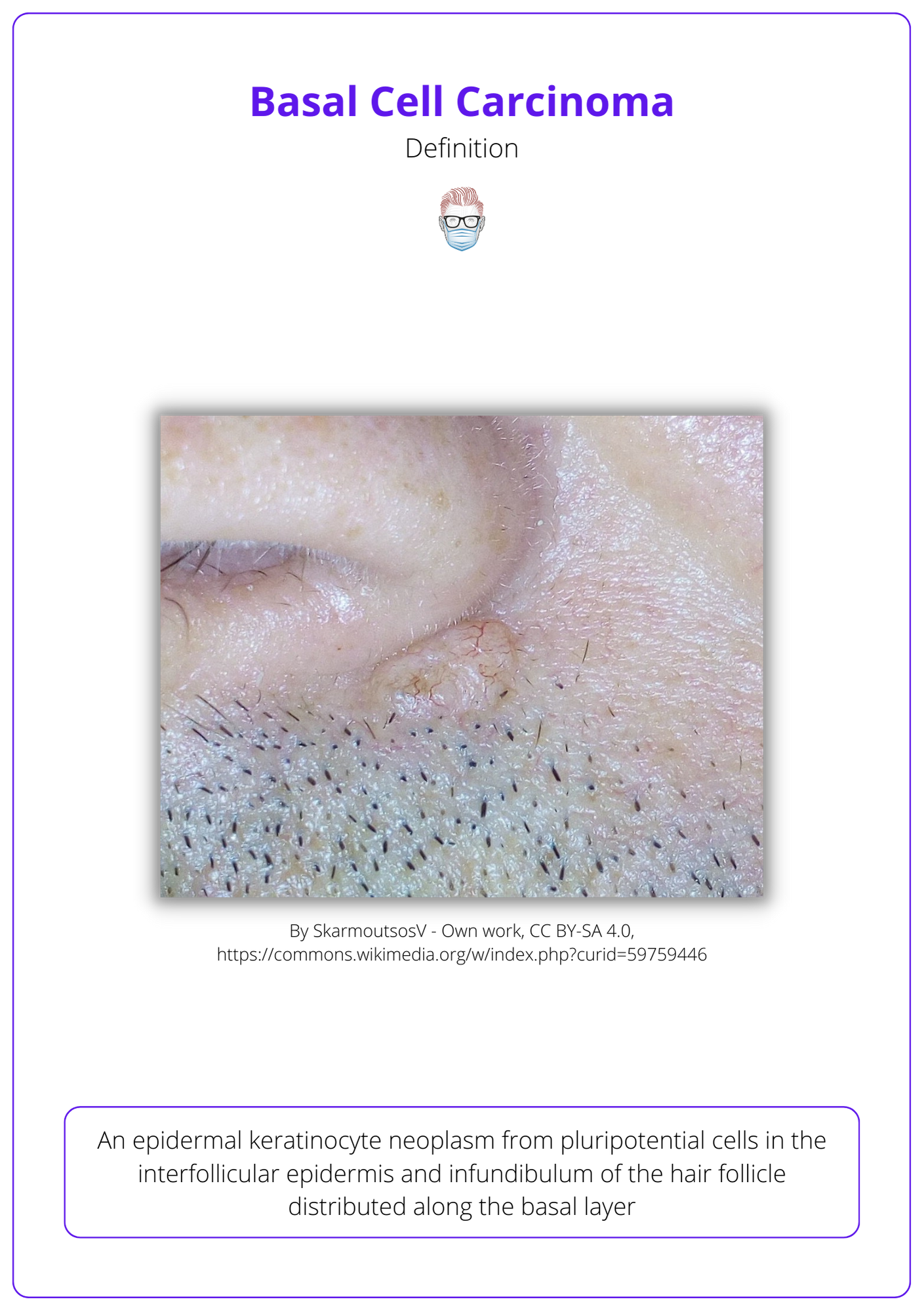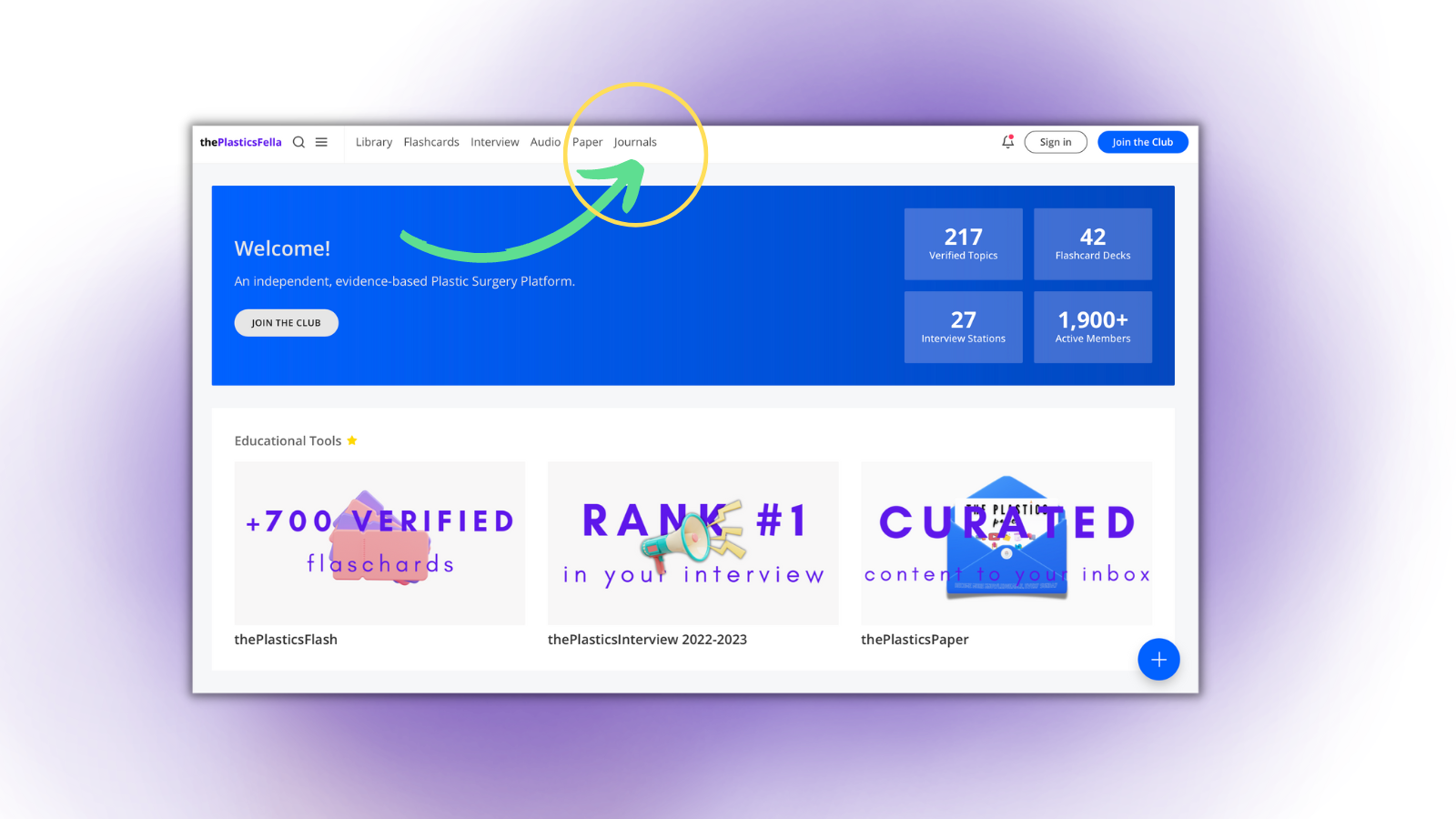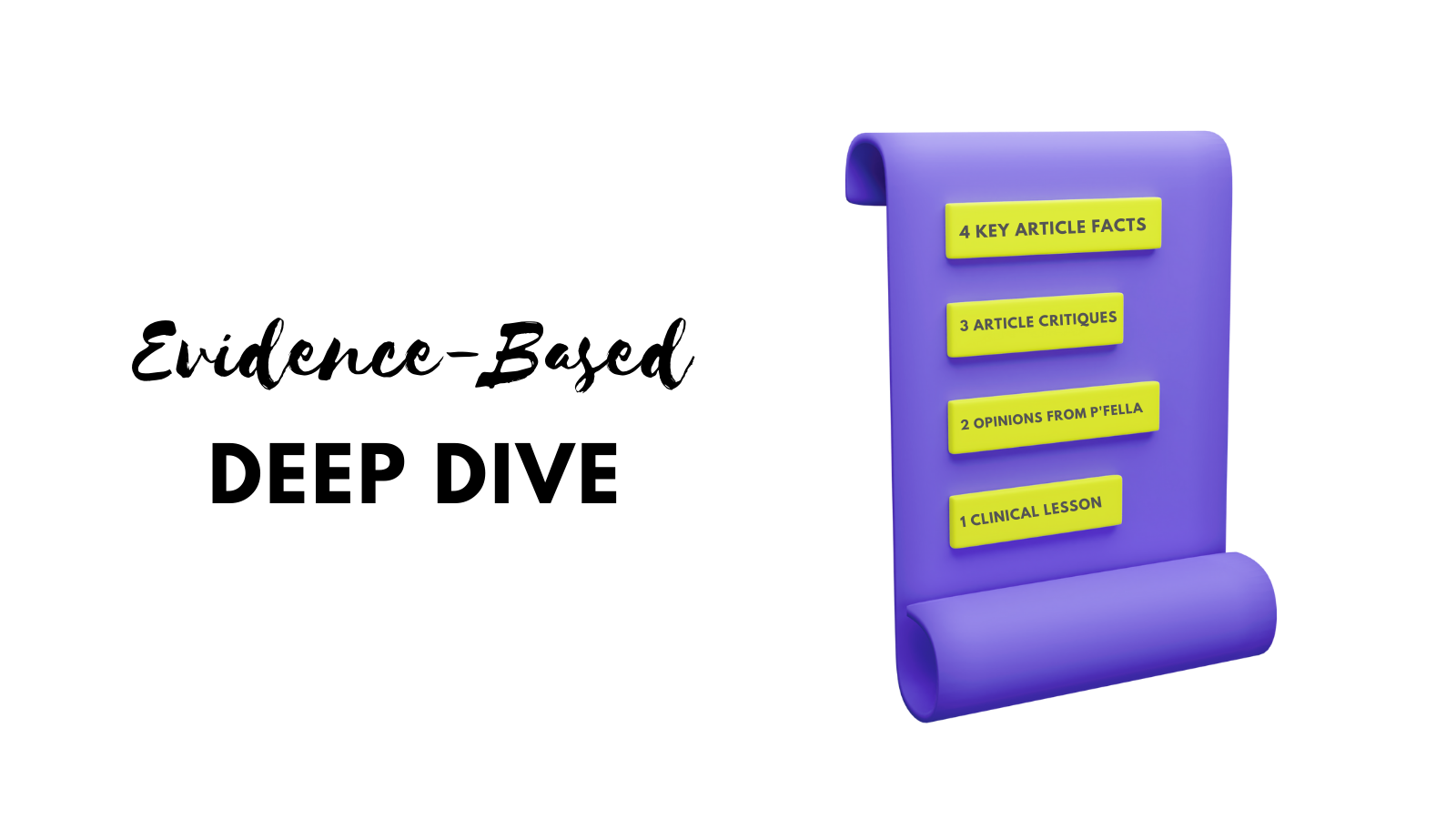In this week's edition
- ✍️ Letter from P'Fella
"Survivorship bias" in Plastic Surgery - 🧨Ask the Expert
How to get your paper published - 🤓 Study on Sunday + Quiz
do you really know basal cell carcinoma? - 🎭 Upcoming Events
10 upcoming events for you. - 🐣 Tweets of the Week
Memes, virals & threads. - 🚀 New Features
Journal club with Powerpoint slides! - 📝 Articles of the Week
3 quick-reads to stay up to date
1 deep-dive (under renovation this week!)
Fun Fact: Last week's journal club on Pitanguy's line was the most popular so far! The powerpoint slides were used in 19 different countries.

Survivorship Bias
During WWI, all returning airplane bombers were assessed to determine the locations on the aircraft in which they underwent the most fire. Most people would have reinforced these areas! To ensure planes keep returning home! Instead, these locations were actually spots in which aircraft could sustain many bullet holes and still return, while the planes that sustained enemy fire in other locations were the ones that went down. Reinforcements were applied to locations less represented in the data of returned planes—as a result, they made more effective predictions and saved many lives.
Check out the image below. Red circles are the bullet holes.

We are reinforcing the wrong aspects of Plastic Surgery training. There is a culture of looking a "successful" Plastic Surgeons and seeing how to replicate their path to success. Instead, we should be looking at the trainees who are struggling to make it through their journey. Examine their armour (so to speak) and see which parts weren't reinforced early enough.
As it was wisely written in this BMJ blog post, "what we don’t take into account with this bias, is the people who leave training posts. There is no standard practice of exit interviews from training programmes, or debriefing for those are struggling and nearly quit".

How to get Published!

Expert: Hatan Mortada, Plastic & Reconstructive Surgery Resident, Saudi Arabia.
When I started my plastic surgery residency, I was worried about maintaining my passion for academic writing and publishing scientific papers with the busy hours during duty.
To maintain my passion for research during my first year of residency, I have mentioned a few tips that helped me.
1. Schedule your writing time when you are most productive. For me, I dedicate a full day of my week to research writing and starting new projects.
2. Make an outline. An outline of what you want to write is essential. Once I knew "what" I wanted to write, it was a lot easier to sit down and write.
3. During your dedicated research hours, turn off your emails, phone, and anything else that might distract you.
4. Don't listen to your inner perfectionist. When you're writing, don't worry about grammar or spelling. That's what editing is for.
5. Keep up with newly published research ideas in your field. You will be able to write and find new ideas to conduct, sparking creativity and new insights. I use an app called researcher, it's an amazing application to keep up with the latest articles in your field of interest.
6. Consistency and persistence are key. For my work, I use the pomodoro technique, which I set me 50 minutes of focused work and 10 minutes for rest, then repeat.

Basal Cell Carcinoma

Basal cell carcinomas are caused by several compounding factors.
- Genetic: xeroderma pigmentosum, Bazex, Rombo, albinism.
- Environmental: Exposure to ultraviolet radiation (UVR), prior radiotherapy
- Immunosuppressed: transplant, HIV, hematologic malignancy, Gorlins
- Pre-existing lesions: naevus sebaceous.
The development of BCC is associated with loss of inhibition of the Hedgehog signalling pathway, which regulates cell growth and differentiation. This is the result of:
- Inactivating mutations in tumour-suppressor protein patched homologue 1 (PTCH1) gene
- Activating mutations in smoothened (SMO) transmembrane protein gene
- Suppressor of fused (SUFU) gene in Gorlin syndrome

10 Courses, Conferences and Webinars
- EURAPS Brachial Plexus - October 13th
- RSTN Becoming a plastic surgeon - Oct 18th
- Plastic Surgery, The Meeting - Oct 2022.
- PLASTA Breast TIG Fellowship - Oct 17th
- BAPRAS Lower Limb Reconstruction - Oct 26th
- Aec 5.1 Limb Reconstruction - Oct 26th.
- EURAPS Eyelid Surgery - November 15th
- BAPRS Congress - November 30th 2022
- BAPRAS 2022 Congress - November 2022.
- EURAPS Facial Paralysis - December 15th

3 top-picks!
Is the paper you need stuck behind a paywall?
— Dr Lisa Nivison-Smith (@LNivisonSmith) October 5, 2022
Five websites every researcher should know to access any research paper for free@AcademicChatter@OpenAcademics
ppl chat a lot of shit about USA medical training, and I’m not saying it’s perfect, but imagine this:
— Ronan (@ronansetron) October 2, 2022
1)the hospital employs you for all of ur residency. they *need* to train you: no training as a PGY1 means that you won’t be able to meet the demands of being the senior resident
“No, the consent form is signed but they can’t leave the ward until you mark the limb with the huge bandage on it.” I’m on my way…pic.twitter.com/HKNycywZ23
— Sandra McAllister (@Sandra_McA) October 5, 2022

Journal club with Powerpoint slides!
Every week, a journal is reviewed and published on this platform. It's a pretty easy way to stay up with relevant and important topics. The articles are hand picked by P'Fella and usually are classic or seminal papers that helped improve Plastic Surgery (not the ususal publish-for-the-CV quality)
You can check out a few of them here!
Oh, yeh you can download the powerpoint slides and use them yourself.


3 new articles
- The First GLOBAL Plastic Trainee Survery
Lindqvist et al. Plastic and Reconstructive Surgery - Global Open: October 2022 - Volume 10 - Issue 10 - p e4520 - Does BOTOX improve Scars?
Hu et al. Effects of Botulinum Toxin on Improving Facial Surgical Scars: A Prospective, Split-Scar, Double-Blind, Randomized Controlled Trial. Plastic and Reconstructive Surgery: March 2018 - Cancer Recurrence after nipple-sparing mastectomy
Boyd et al. Long-Term Cancer Recurrence Rates following Nipple-Sparing Mastectomy: A 10-Year Follow-Up Study. Plastic and Reconstructive Surgery: October 2022
1 Deep Dive

Under Renovation!
This section is being upgraded to make the journal club experience bettter for you. Check back next week!


